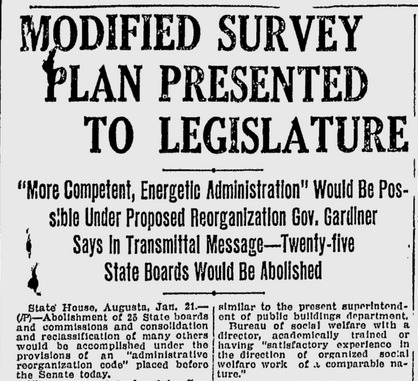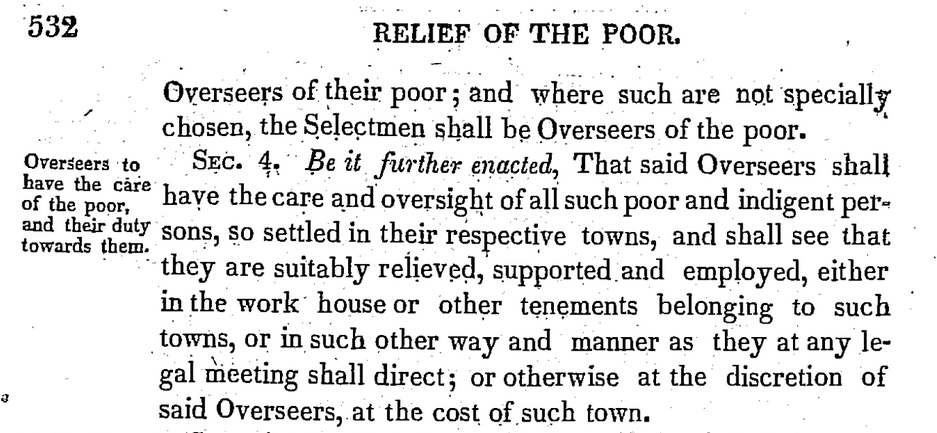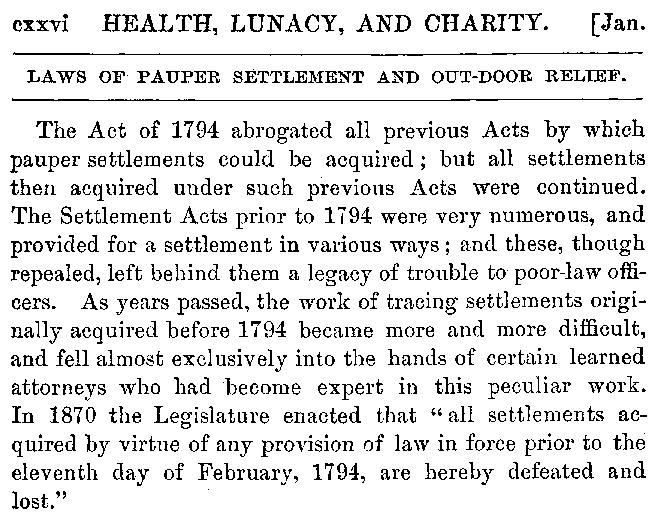
Alongside the growth of centralized institutional care for people with disabilities, the early 30s brought a parallel consolidation of governmental administration under the executive branch, including the creation of the Department of Health and Welfare.
![Lewiston Evening Journal, July 15, 1911 Newspaper Clipping from Lewiston Evening Journal, July 15, 1911 – Headline: Burn ‘Em Up Says Gov. Plaisted: Who Would Remove Malaga Island Natives to Institution. Body: The official visit to Malaga Island made by Gov. Plaisted, Council and guests on Friday, may lead to some radical measure being taken with the residents of that more or less unsavory place. The visit was promoted by Hon. E.B. Winslow of Portland, and the party wore his guests for the day. He had chartered the steamer Machigonne and had provided in every way for the comfort of the party which was made up as follows: Governor Frederick W. Plaisted, Mrs. Plaisted, Miss Gertrude Plaisted, Mrs. Elma Woodbury of New York, Hon. And Mrs. Charles L. Turgeon of Auburn, Hon. And Mrs. Weston Lewis of Gardiner, Hon. and Mrs. C.G. [cut off]](https://shadowsofpineland.org/wp-content/uploads/2021/07/1911-July-15-Lewiston-Evening-Journal.png)
Maine’s Malaga Island in the late-19th and early-20th centuries was inhabited by a mixed-race community of fishermen and families. In the early 1900's, fear and racism turned public opinion against the people of Malaga, and many inhabitants of that island were sent to the School for the Feeble Minded.
Only three years after the Maine School for the Feeble-Minded opened, a visiting committee identified problems.

This law led to the rise of “town farms”, also called “Alms houses” or “poor farms” - across Maine, there were perhaps dozens or several hundred. These farms became repositories for all who could not support themselves and had no family to care for them - the poor, the aged, the infirm, and those with disabilities.

In 1767, the General Court in Massachusetts made changes to settlement laws that decriminalized “transiency” and saw the end of “warning out” as an effective means of avoiding providing aid to those that needed it. Around the same time, custodial care by families began to transition to the more institutional model of Poorhouses and Almshouses.
